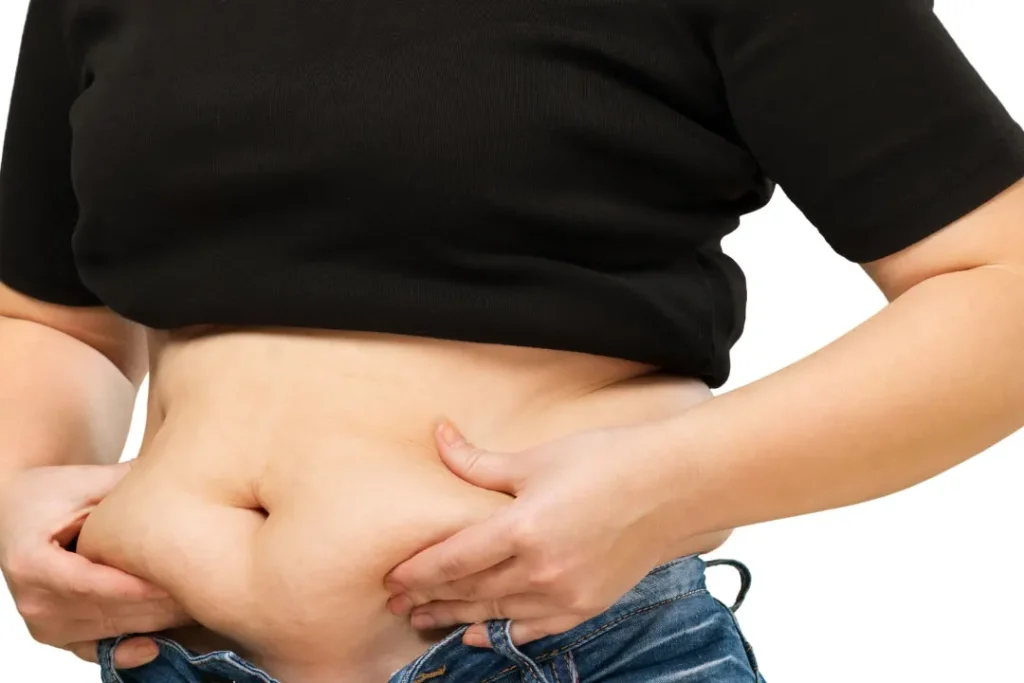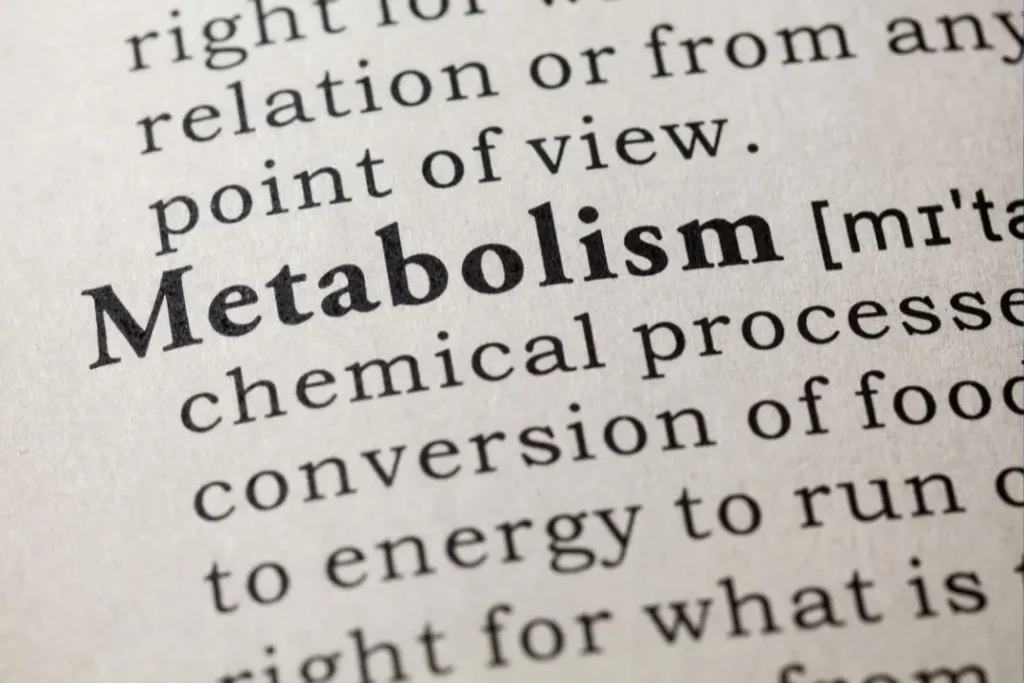Globally, obesity is a significant health concern, while in the U.S., it’s an epidemic. On average, Americans gain about 45 pounds over their lifetime, and the trend toward dangerous weight gain is not slowing down. The link between weight gain, obesity, and chronic disease is clear.
Americans are constantly looking for weight loss interventions that work. One remedy that is getting some attention is berberine, a supplement that has been dubbed “nature’s Ozempic,” referring to the drug that can help people shed some pounds. Let’s explore the scientific evidence behind the efficacy of berberine weight loss, the mechanisms involved, and whether it’s safe to use.
You May Also Like:
CBD Oil for Depression: A Promising Solution or Just a Fad?
Seaweed as a Supplement? Dive into This Hidden Strategy for the Prevention of Iodine Deficiency
Berberine Weight Loss 101: The Science Behind the Benefits is an original (BioHackingNews&Trends) article.
How does berberine weight loss work?
Berberine is a natural compound that can be extracted from several plants, including a group of shrubs called berberis. When you take berberine as a pill or powder, it enters your bloodstream and travels to your cells, binding to different molecules. Berberine works at a cellular level and changes how cells work by turning things on and off.
According to some animal studies, berberine activates an enzyme inside cells called AMP-activated protein kinase or AMPK. Activating AMPK can lead to an increase in glucose uptake and improved insulin sensitivity. This enzyme plays a key role in regulating metabolism and energy and can have an impact on the accumulation of fat.
Several clinical trials have investigated the effects of berberine on body weight and body composition in people who are overweight and obese. In one 12-week study, participants taking 500mg of berberine three times a day saw an average weight loss of 5 pounds and a 3.6% reduction in body fat.
Other studies have found that supplementing with berberine led to significant reductions in body weight, body mass index, and belly fat. It also found decreased levels of C-reactive protein, which is a marker of inflammation. Berberine also appears to inhibit the growth of fat cells at the molecular level, which could help with weight loss.

How do fat metabolism and appetite impact berberine weight loss?
At least one study shows that berberine inhibits genes involved in fat formation. It also increases the expression of the protein mRNA in skeletal muscles, which increases the metabolism of fat and glucose. Berberine is a catalyst for the process by which glucose is broken down to produce energy. The glycolysis process improves insulin secretion and inhibits the accumulation of fat cells.
Berberine appears to have an impact on the appetite-regulating hormones leptin and ghrelin. These hormones play a significant role in feelings of hunger and satiety. By having an influence on these two hormones, berberine may help control food intake and reduce the urge to overeat.
Leptin is a hormone your body releases that help maintain normal weight over the long term. The amount of leptin in the blood is directly related to how much body fat you’re carrying. Leptin resistance will cause you to feel hungry and eat more even though your body has adequate stores of fat. Ghrelin, on the other hand, is a hormone that signals the brain when the stomach is empty and it’s time to eat. Ghrelin levels increase in between meals and decrease when you are full. People who are often obese have low ghrelin levels.

Gut microbiota will have an increase in berberine weight loss.
A balanced gut microbiome is believed to play a role in weight loss. Our gut breaks food down into small pieces. It’s only the smallest pieces that get absorbed into our bloodstream. The rest is eliminated as waste.
Bacteria that are more efficient at breaking down food into those digestible smallest pieces add calories to our body and therefore cause our weight to increase. New evidence suggests that berberine can help modulate our gut microbiota composition, influencing the growth of beneficial bacteria. Beneficial bacteria are associated with leaner body types.
Is berberine nature’s Ozempic?
Some studies have compared berberine’s weight loss effects to more conventional methods for weight loss, such as lifestyle modifications and pharmaceuticals. Like Ozempic, berberine can decrease blood sugar, which can lead to weight reduction. Unlike Ozempic, berberine doesn’t alleviate hunger pangs or stop cravings.
Studies show that berberine users may lose up to four pounds a month, while those using Ozempic may lose up to 12 pounds a month. However, berberine is an inexpensive alternative when compared to Ozempic’s monthly cost of $1,000. A month’s supply of berberine will cost about $40.
Are berberine weight loss supplements safe?
Berberine is generally well-tolerated and is considered safe for most people when used in proper doses. The more common side effects are mild and may include digestive issues such as upset stomach, constipation, and nausea. It can also cause a rash or headache in some people.
Berberine may interact with other medications and is unsafe to take with blood sugar and blood lipid medications, as well as liver, blood clotting, and blood pressure medications. It may interfere with drug metabolism, which can affect the effectiveness of other medications.
Individuals taking medications should consult their healthcare professional before using berberine weight loss supplements. Pregnant or breastfeeding women and those with liver or kidney disorders should also consult their doctor before taking any kind of berberine weight loss supplements.

myPEAK Wellness is one of the best berberine weight loss supplements
myPEAK Wellness is an award-winning nutritional supplement that is produced by myPEAK Supplements. myPEAK Wellness is a vegan multivitamin formulation that includes the benefits of ElevATP. This combination of ancient peat and apple extract combines polyphenols with fulvic acid and delivers a wide range of health benefits.
The polyphenol blend includes berberine which promotes healthy sugar and body weight. myPEAK Wellness was designed by a medical doctor who also has a deep interest in the health benefits offered by Eastern medicine. The product is a formulation of dozens of nutrients that help users achieve peak physical performance, optimum brain health, and healthy aging.
Berberine weight loss benefits – What’s next?
Berberine is a fascinating natural compound that has a wide range of potential health benefits, but it shows remarkable promise for weight loss. Studies show that berberine may be effective at regulating blood glucose levels and boosting metabolic health. As a weight loss supplement, berberine is attracting the attention of consumers.
However, sustainable weight loss may be best achieved through a more comprehensive approach that includes a nutritious diet, regular exercise, and other lifestyle modifications that support weight loss. Individual responses to berberine may differ. Some may see significant weight loss, while others will see only a minimal effect. Further study is needed to understand the long-term effects and ideal dosages for berberine, but as a weight loss option, it is showing some promise.

For further research:
Cleveland Clinic: What to know about berberine – Benefits, uses, and side effects
Women’s Health: What are the benefits of berberine, and should you take the supplement dubbed nature’s Ozempic?
NBC News: What is berberine, the supplement dubbed nature’s Ozempic on social media?
Prevention: What is berberine, the supplement TikTokers are calling nature’s Ozempic?
CBS News: Nature’s Ozempic. What’s behind a new weight loss supplement?
Important Note: The information contained in this article is for general informational purposes only and should not be construed as health or medical advice, nor is it intended to diagnose, prevent, treat, or cure any disease or health condition. Before embarking on any diet, fitness regimen, or program of nutritional supplementation, it is advisable to consult your healthcare professional in order to determine its safety and probable efficacy in terms of your individual state of health.
Regarding Nutritional Supplements Or Other Non-Prescription Health Products: If any nutritional supplements or other non-prescription health products are mentioned in the foregoing article, any claims or statements made about them have not be evaluated by the U.S. Food and Drug Administration, and such nutritional supplements or other health products are not intended to diagnose, treat, cure, or prevent any disease.